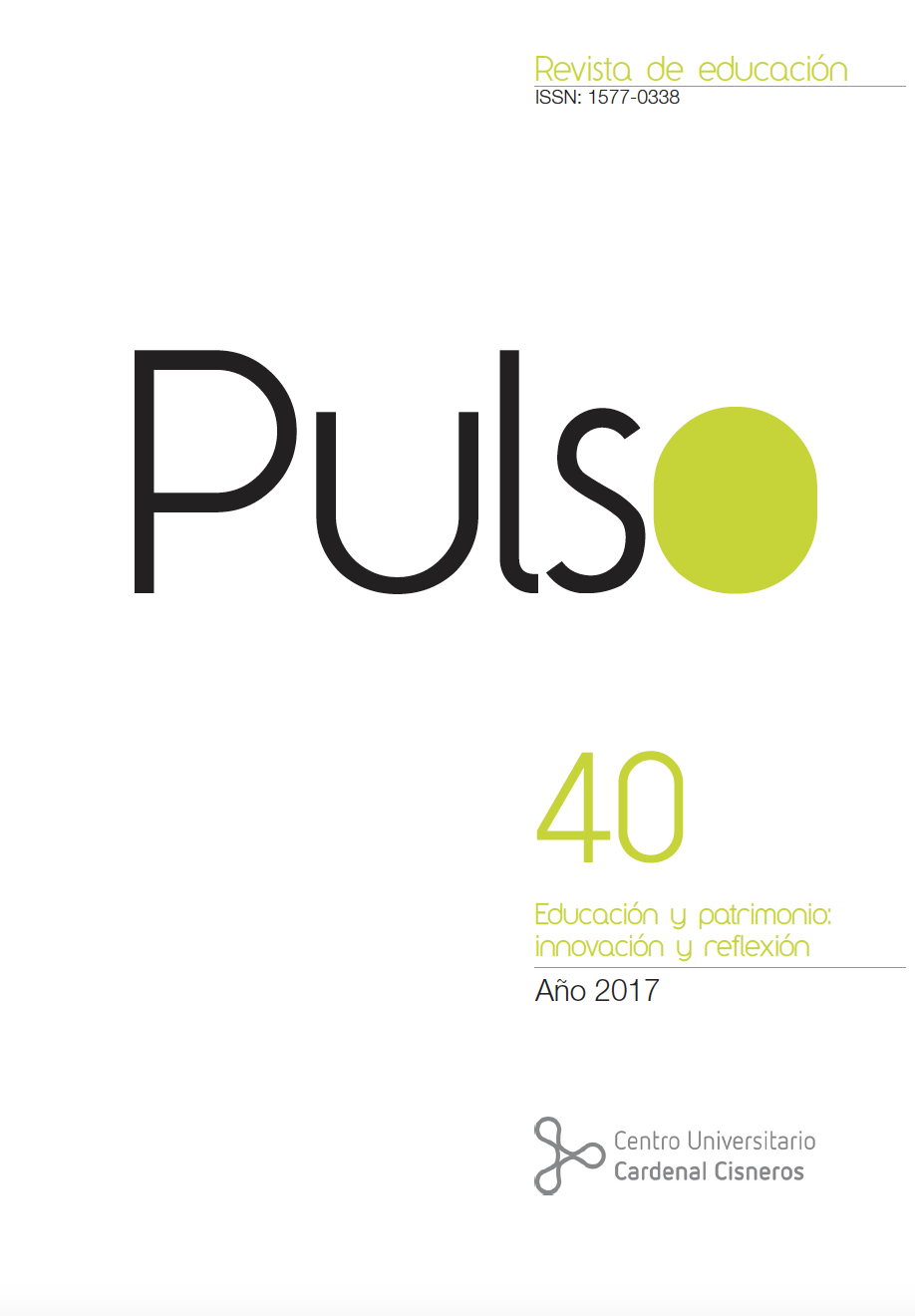Heritage education and social media. From research to action: the Heritage Education project
DOI:
https://doi.org/10.58265/pulso.5116Keywords:
Socio-digital contexts, heritages, Educommunication, Action research, Informal learningAbstract
Social media 2.0 has become a turning point for many developmental processes of communication and interaction. To this day, we do not use digital technologies solely to obtain information. Web 2.0 has provided us with a new society, not only of information and knowledge, but also of dialogue and open opinion, multiple learning, sharing and networking, which are unavoidable for any discipline. Heritage is one of these disciplines present in social networks. Starting from two moments or research stages, we have analysed the presence of heritage in these contexts in search of examples of heritage education. We discovered certain heritage communication models that accommodate the new languages. Our intention with these studies was to construct, based on the existing reality, an educational communication and methodological action as a means of educational and evaluative practice. This gives rise to Heritage Education, which is currently being developed, with the purpose of working with different types of heritage, and establishing links between them and people.
Downloads
References
Ballart, J. y Tresserras, J. J. (2005). Gestión del patrimonio cultural. Barcelona: Ariel.
Brandao, C.R. (1986). Educaçao Popular. Sao Paulo: Brasiliense.
Burbules, N. C. (2012). El aprendizaje ubicuo y el futuro de la enseñanza. Encounters/Encuentros/RencontresonEducation, 13, 3-14.
Castellano, K. (2010). Internet, un entorno social para el diálogo.Revista TELOS Cuadernos de Comunicación e Innovación, 82, 122-125. Recuperado de https://telos.fundaciontelefonica.com/
Csikszentmihalyi, M. y Hermanson, K. (1995). Intrinsic motivation in museums. What makes visitors want to learn? Museums News, 74 (3), 34-61.
Cuenca López, J. M. (2014). El papel del patrimonio en los centros educativos: hacia la socialización patrimonial. Tejuelo, 19, 76-96.
Cuenca López, J. M. y Martín Cáceres, M. (2009). Parámetros para la comunicación patrimonial. En González Parrilla, J. M. y Cuenca López, J. M. (coord.). La Musealización del Patrimonio. (pp. 47-64). Huelva: Servicio de Publicaciones de la Universidad de Huelva.
García Canclini, N. (1997). El patrimonio cultural de México y la construcción imaginaria de lo nacional. México, DF: Fondo de Cultura Económica.
Kaplún, M. (2010). Una pedagogía de la comunicación. En Aparici, R. Educomunicación: más allá del 2.0. (Pp. 41-61). Madrid: Gedisa.
Maldonado, Mª S. (2016). Educación patrimonial y redes sociales. Análisis y evaluación de acciones en los medios de comunicación social para la definición de una cartografía educativa. Tesis doctoral inédita. Universidad de Valladolid. Recuperado dehttps://www.educacion.gob.es/teseo/mostrarSeleccion.do
Martín Cáceres, M. (2012). La educación y la comunicación patrimonial: una mirada desde el Museo de Huelva. Tesis doctoral inédita. Recuperado de: http://rabida.uhu.es/dspace/handle/10272/6048.
Martín Cáceres, M. y Cuenca, J.M. (2015). Educomunicación del patrimonio. Educatio Siglo XXI, Vol. 33 nº 1, 33-54.
Martínez-Salanova, E. (2015). Educomunicación, acción militante, amistad, motor de cambio y lugar de encuentro.AULARIA. El país de las aulas,1, 1-8. Recuperado de http://www.aularia.org/Articulo.php?idart=196&idsec=1
Siemens, G. (2004). Conectivismo: una teoría de aprendizaje para la era digital. Recuperado dehttp://apliedu.xtec.cat/wikiform/wikiexport/_media/cursos/tic/d006/modul_1/conectivismo.pdf.
Stake, R. (2006). Evaluación comprensiva y evaluación basada en estándares. Barcelona: Editorial Graó.
Zapata-Ros, M. (2015). Teorías y modelos sobre el aprendizaje en entornos conectados y ubicuos. Bases para un nuevo modelo teórico a partir de una visión crítica del “conectivismo”. Education in the Knowledge Society (EKS), v. 16, n. 1, 69-102.
Downloads
Published
How to Cite
Issue
Section
License
Copyright (c) 2022 Pulso. Revista de educación

This work is licensed under a Creative Commons Attribution-NonCommercial-NoDerivatives 3.0 Unported License.
This journal offers immediate open access to its content based on the idea that offering readers free access to research favours a global exchange of knowledge.
Papers are published in the electronic version of the journal under a Creative Commons License: Attribution-NonCommercial-No derivatives 4.0 International
Authors are allowed and encouraged to promote the post-print version (reviewed and accepted for publication version) of their work online before publishing them. This favours their earlier circulation and dissemination and thus a possible increase in their citation and reach among the academic community.














